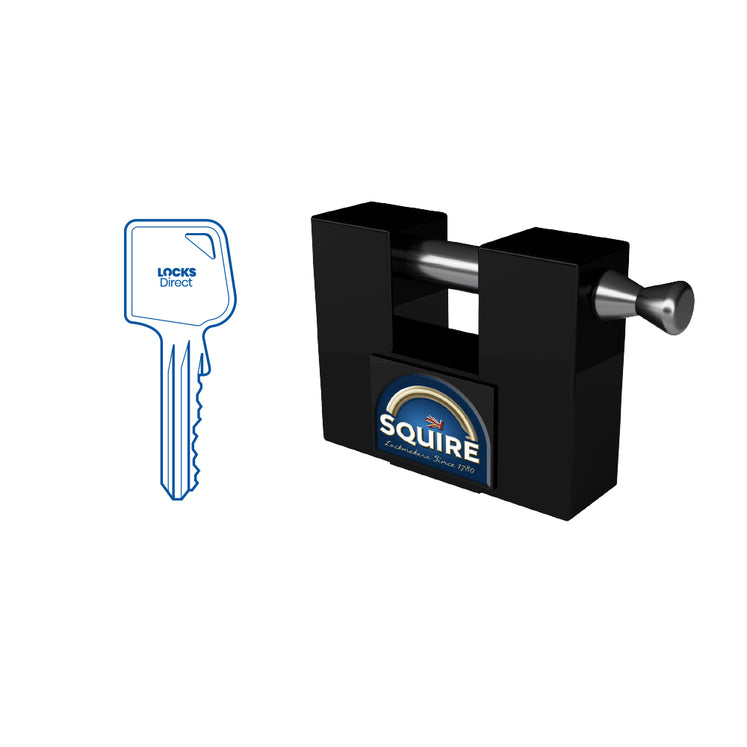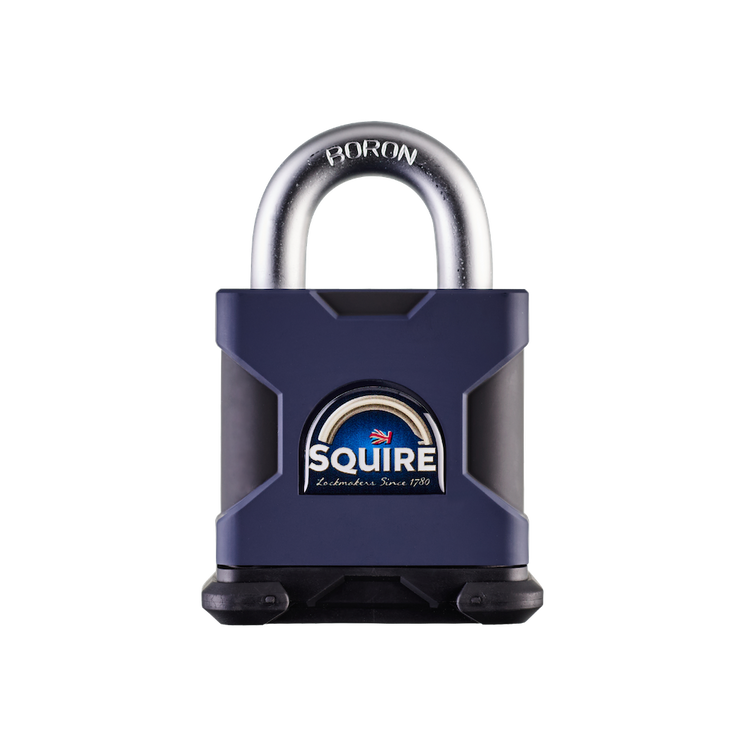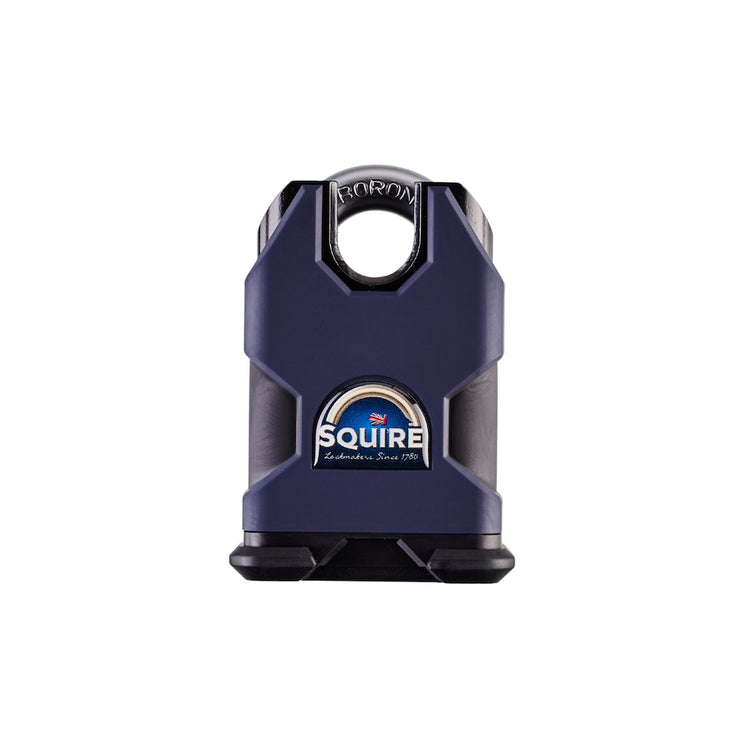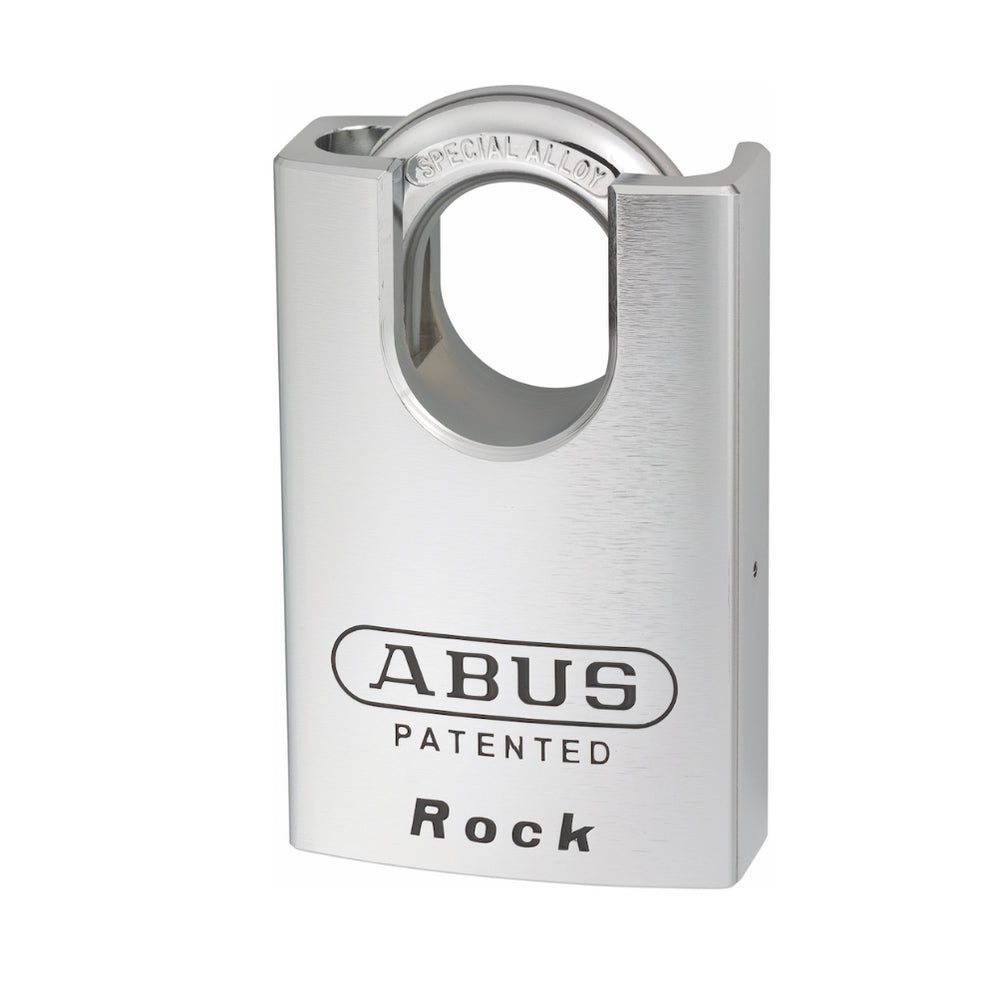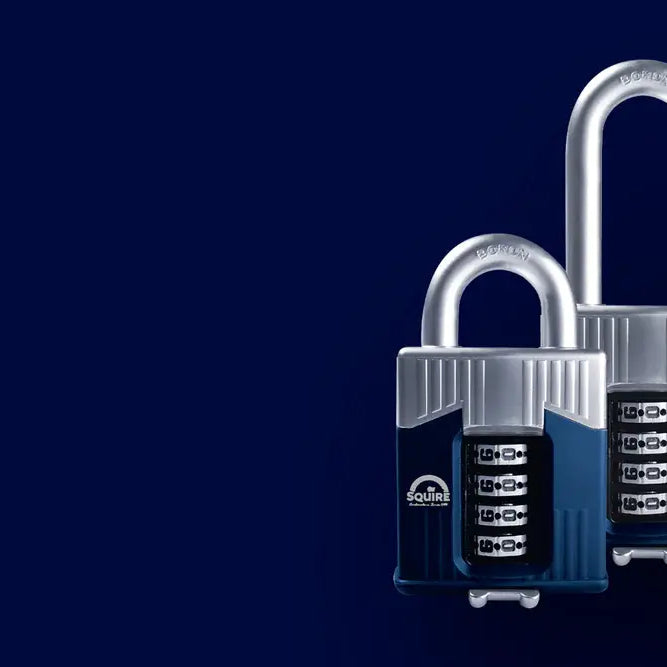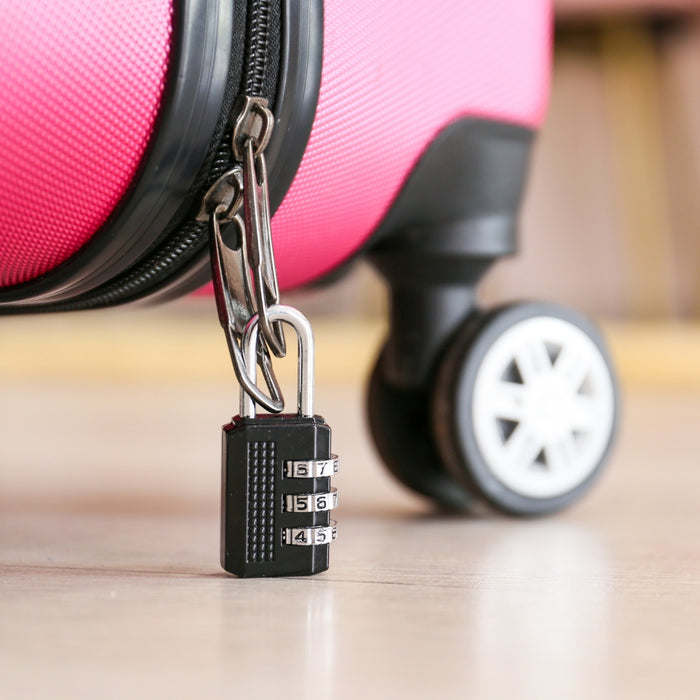
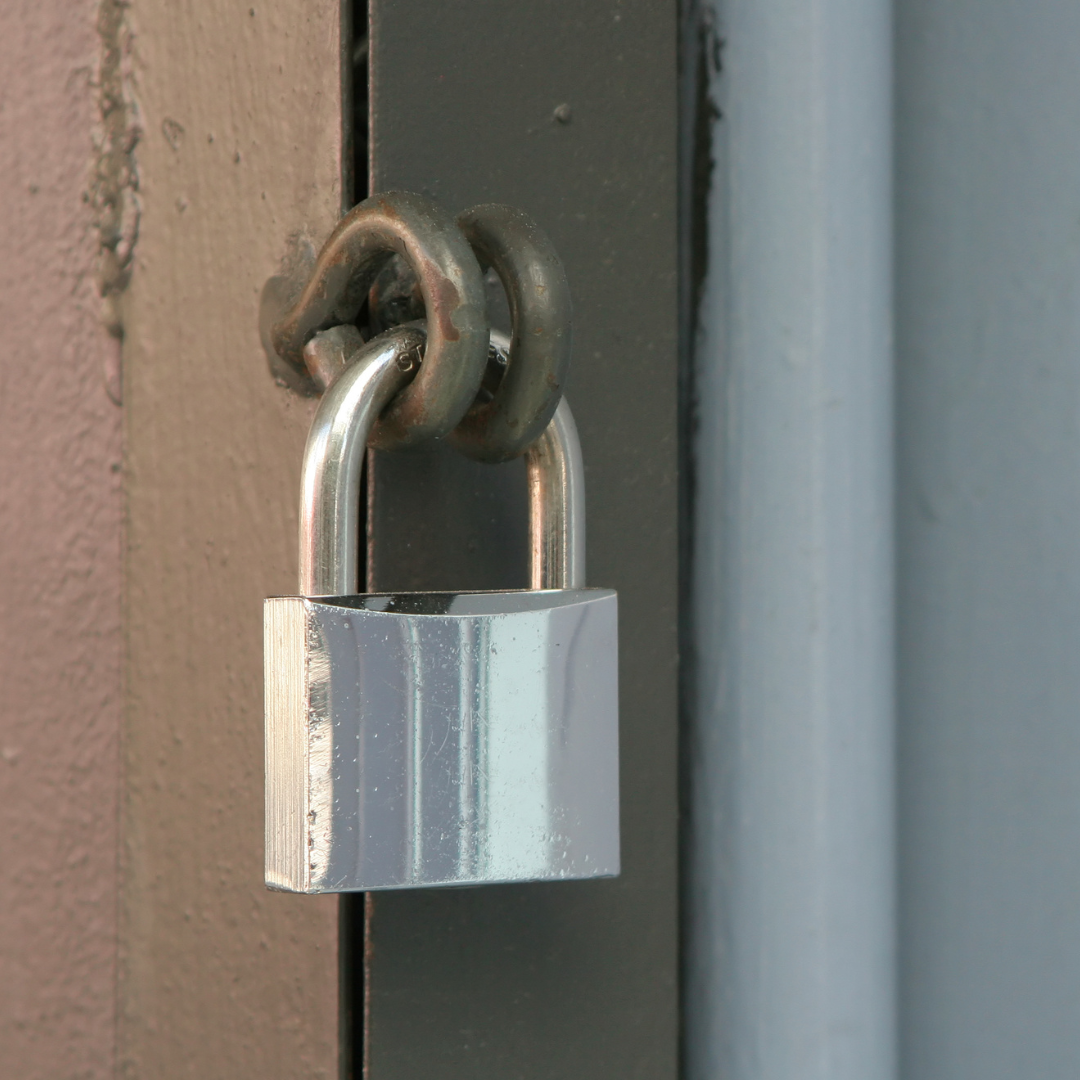
The Benefits of Using a Restricted Padlock Explained
Picture this: you're guarding a vault and inside is everything that defines your world – secrets, treasures, the whole lot. You wouldn't just slap on any old padlock. With quality restricted padlocks from Locks Direct, it's like having an unbreachable seal on your personal universe.
Imagine dealing with a break-in and reading on the police report ‘unauthorised key duplication’. Something you didn’t imagine possible. With our restricted padlocks, it’s not. Ensuring only authorised individuals can access private areas is vital for good mental wellbeing in your home or business. By the end of this blog, you'll understand the importance of secure locking systems for protecting your private spaces.
- Understanding restricted padlocks and their mechanisms
- What makes a restricted padlock unique?
- The role of restricted key blanks in business security
- Enhanced security measures for business owners
- Prevent unauthorised duplication with restricted padlocks
- Different levels of access based on employee responsibilities
- Simplify management during onboarding/offboarding
- Where to use restricted padlocks for optimal security
- The industries that need restricted padlocks
- Choosing the right restricted padlock
- Dealing with lost or stolen keys in a restricted system
- Immediate actions: the first line of defence
- Avoiding duplicate drama: keeping your cool when keys go AWOL
- FAQs in relation to the benefits of using a restricted padlock
- What is a restricted padlock?
- What are restricted keys used for?
- What are the advantages of padlocks?
Understanding restricted padlocks and their mechanisms
If you're looking to upgrade your security game, getting clued up on restricted padlocks is a smart move. These aren't your run-of-the-mill locks. They're like the VIP section of security - exclusive, hard to get into and reassuring you that your belongings are safe.
What makes a restricted padlock unique?
The charm of a restricted padlock is in its unique design which shouts 'enhanced security'. It's not just about having something shiny; it’s about the intricate mechanics inside. Each lock boasts a restricted keyway - think of it as an ultra-exclusive nightclub where only those with the fanciest shoes (or in this case, keys) can get past the bouncer.
This high level of exclusivity means unauthorised individuals won’t be able to make copies. Locksmiths need permission from an authorised person before creating duplicates. This patented design keeps things tight-knit and under wraps because each key comes with a number attached – making them traceable back to their rightful owner if they ever go walkabout.
The role of restricted key blanks in business security
You might wonder how these little pieces fit into this jigsaw puzzle we call business security. Standard key blanks are everywhere – but restricted ones? They’re more elusive than spotting Bigfoot on holiday. By implementing restricted key systems, you gain control over who has access easily without fretting over unauthorised duplication or compromised safety due to lost or stolen keys.
Enhanced security measures for business owners
If you're a business owner, imagine your peace of mind knowing that the keys to your kingdom are as unique as your fingerprint. That's what restricted padlocks offer.
Prevent unauthorised duplication with restricted padlocks
Restricted padlocks offer enhanced security through exclusive, patent-protected key designs, preventing unauthorised access. Each key is like an exclusive invite, ensuring only authorised individuals are part of the elite club with strictly members-only entry. It goes beyond securing access points; it liberates users from concerns about compromised security or stolen keys, creating a worry-free environment for key holders.
Different levels of access based on employee responsibilities
Better yet, why hand out master keys haphazardly when you can control access with military precision? A good commander knows who needs to be where and when. Implementing restricted padlocks lets employees glide through doors they need while others stay snugly shut without needing complex high-security clearance operations each morning.
Simplify management during onboarding/offboarding
We all know people lose things faster than socks vanish in dryers. But if someone loses their 'magic pass', don't panic about changing all the locks, just request a duplicate from your experienced locksmith designated by the system itself. Plus, should worse come to worst - a lost or stolen key - rekeying is simple and safe.
Where to use restricted padlocks for optimal security
When you're guarding a fortress, you want the best, most durable and hard-wearing padlock on the block - that's where restricted padlocks come into play.
If we talk about high-security areas such as construction yards or garages holding prized possessions, you need a padlock that goes the extra mile. With a restricted padlock, only those with a need-to-know can get through those doors – and there’s comfort in knowing that making copies isn't an option unless you say so.
The industries that need restricted padlocks
In industries where security is more than just locking up after hours but rather protecting trade secrets and ensuring safety – think pharmaceuticals or tech companies – these locks are vital.
It's not just about having different levels of access; it's also about control over who has what level and when. Say goodbye to fretting over ex-employees still wandering around because someone forgot to ask for their keys back during offboarding.
Let’s consider places like schools or gyms where personal belongings need safeguarding. A lost key doesn’t have to mean chaos if it belongs to a restricted system: rekeying becomes straightforward when professional locksmith services are involved, since each lock comes with its own code number attached.
You'll see limited access areas all buttoned up tight thanks to this setup – be it storerooms holding expensive equipment or filing cabinets stuffed with sensitive data.
Choosing the right restricted padlock
Picking the right restricted padlock can be a difficult task. It’s like choosing the best goalkeeper for your team, knowing they'll save you when it counts. With a patented design, these high-security locks are more Cristiano Ronaldo than Sunday league.
A couple that we would recommend are:
The Restricted Squire SS50CS Stronghold Padlock provides superb protection in high-risk areas and high cutting resistance thanks to its solid hardened steel closed shackle. Boasting a level 4 on the European recognised CEN standard for locks, this restricted lock is suitable for applications that require high levels of security. This Squire restricted padlock is also ideal for outdoor use thanks to its excellent weather resistance in volatile conditions. We recommend the SS50CS for use on sheds, garages or vans. This high-security padlock also comes with a restricted key profile, which makes it difficult for keys to be replicated.
We also think the Restricted ABUS 83CS/55 Padlock is a fantastic option for home and business owners alike. Ideal for protection in high-risk areas or for high-value assets stored inside lorries, vans, garages, sheds and more. Part of the Rock Abus padlock range, it boasts a grade 4 on the CEN scale, ‘Silver’ Sold Secure rating and a hardened alloy steel shackle and body. This key retaining lock is drill and saw-resistant, offering great security for required applications. It’s also weatherproof, protecting your property even in extreme weather conditions.
Dealing with lost or stolen keys in a restricted system
Ever felt that sudden sense of dread, when you realise your keys have gone missing? Here is what you can do.
Immediate actions: the first line of defence
The minute you realise your key is gone, call your designated locksmith. They'll understand the urgency and kick-start procedures to maintain your security integrity. If you’re dealing with patent-protected locks, they can advise on immediate steps (usually rekeying or replacing cylinders) to prevent unauthorised individuals from finding their way into areas they shouldn't.
In cases where access easily needs reshuffling due to lost keys, master locksmiths are who you need to speak to. With them involved, controlling access becomes less about panic stations and more about swift action.
Avoiding duplicate drama: keeping your cool when keys go AWOL
One major perk of restricted systems? Preventing unauthorised duplication. Say ta-ra to worries over somebody copying keys at any local locksmith - these beauties need special authorisation from you for an experienced locksmith who’s got his own rules before he cuts anything resembling a duplicate.
If by chance someone does try chancing their arm at getting unauthorised copies made without going through proper channels like registered key blanks - they're out of luck. There’s no quick fix here because each unique key comes with its number attached, meaning only an authorised person can request duplicate ones from specified dealers or manufacturers directly.
For more information on our range of restricted padlocks, make sure to speak to a dedicated member of our helpful team on 0800 542 1264.
FAQs in relation to the benefits of using a restricted padlock
What is a restricted padlock?
A restricted padlock limits key duplication, giving you tighter control over who can unlock it.
What are restricted keys used for?
They're employed to prevent unauthorised copying and enhance security in sensitive areas.
What are the advantages of padlocks?
Padlocks offer portable protection and deter opportunistic theft with their visible presence.

